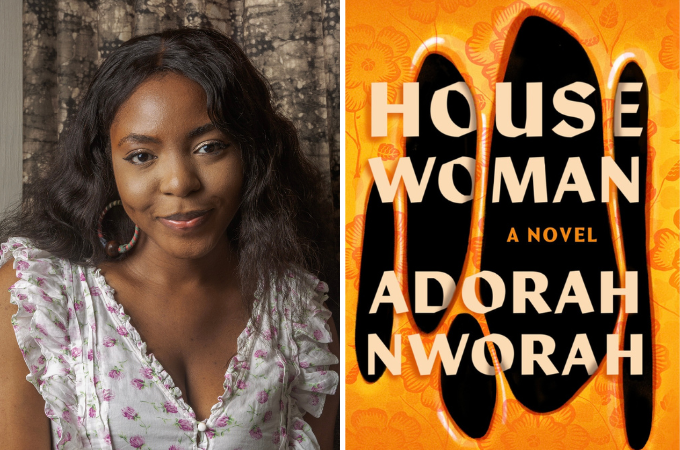
Nigerian author Adorah Nworah’s debut novel House Woman comes out on June 6. House Woman is a psychological thriller about a woman trapped in an arranged marriage.
When Ikemefuna travels from Lagos to Texas, she anticipates a happy all-American life with a handsome husband, a beautiful mansion, and dance classes. But her in-laws have a much darker and sinister plan in store for her. Family secrets emerge and Ikemefuna must try to escape a marriage burdened with generational cycles of pain and silence.
***
Brittle Paper
Hello Adorah. I am delighted to chat with you. Congrats on the new book. House Woman is a brilliant book. What does it feel to get the book out in the world?
Adorah Nworah
Thank you. Releasing a novel into the world feels like a slow exhale. You spend long months revising a manuscript till your eyes glaze over. Next, you are holding a physical copy of your novel in your hands and readers are opining on it. It forces you to relinquish control of your novel’s trajectory, to trust that it will thrive in your absence.
Brittle Paper
Let’s begin with a brief description of what the book is about.
Adorah Nworah
House Woman follows Ikemefuna, a young Igbo woman who moves to the U.S. for her arranged marriage to an Igbo man. But what begins as a simple transaction turns into something far more sinister as her in-laws’ demands for a grandson grow increasingly urgent.
Brittle Paper
Take us back to the beginning. Where did you get the idea for the story?
Adorah Nworah
House Woman lies in the intersection between my love for suspense-tinged stories and my morbid fascination with Nigeria’s deification of marriage. I wanted to capture the little domestic horrors you miss if you blink. An unfamiliar face in the upstairs window of a neighbor’s house. A guttural scream puncturing humid suburban air. The barely coherent pleas of a young woman in a strip mall restaurant. Maybe it’s nothing. Or maybe something is off.
Brittle Paper
The thriller is a genre that is as yet not really explored in African literature. What drew you to the genre? What challenges did you face writing an African story in the genre?
Adorah Nworah
Writing an African thriller was a no-brainer for me given my love of the genre. I was raised on oral Igbo thrillers. I think of the Igbo folktale of Chionari––a beautiful maiden who marries a handsome man, only to discover he is a spirit with borrowed body parts. Beyond that, I grew up listening to stories about vengeful mami wotas and disobedient humans who turned into yam tubers at the whim of a god. Imagine turning into carbs? Life doesn’t get spookier than that.
The main challenge I faced in writing an African thriller was balancing the fast pace of a thriller with my somber exploration of important themes like intersectional oppression and a woman’s right to privacy. I found myself revisiting chapters to make sure the prose didn’t lean heavily in one direction to the detriment of the other.
Brittle Paper
From the moment Nna walks through the door in the opening scene to the heart-stopping end, the story is packed full of drama. How did you manage to maintain such a heart-stopping pace?
Adorah Nworah
Books truly inform my writing. With House Woman, I attempted to recreate the hunger that novels like Etaf Rum’s A Woman is No Man and Oyinkan Braithwaite’s My Sister the Serial Killer stirred in me, that feverish dash through the pages of a novel till I am out of breath. Thanks to feedback from my astute editors, I also deleted chapters that slowed the story’s progression. Snip. Snip.
Brittle Paper
All your characters are messy. No one in the story, not even our beloved heroine, has their lives together. But I loved that about the story. It made the character relatable and human. Is this something that you deliberately put in the story?
Adorah Nworah
It was intentional in the way that breathing is intentional despite occurring with little thought. I’ve always been drawn to characters that are painfully human––characters that lean into the messiness of their lives or are at least aware it exists even if they spend the rest of their lives trying to nip it. These characters litter the stories I write, and I look for them in the stories I read. They reflect the simple reality of our humanity, that no one really has their ducks in a row. That we mess up in big and little ways, and maybe we try to do better or maybe we don’t.
Brittle Paper
Tell me about the role of the Goddess Ala. I wasn’t sure whether you wanted to represent her as evil or whether you were critiquing people who exploit her power in the service of evil? It’s something I struggled with as I read the book, especially, given the negative attitude many Nigerians have about Indigenous deities. I worried that the book might reinforce some of these stereotypes.
Adorah Nworah
Ala takes a backseat for the entirety of the novel. Everything we know about her is hearsay. I deliberately left things hazy with Ala because I wanted to explore our fraught relationship with organized religion and its minefield of false prophets, unrealized prophecies, and disillusioned believers who must separate truth from fiction. I wasn’t interested in ascribing virtues or vices to Ala. I only cared to depict Agbala’s relationship to Ala and how the Nwosus and the Azubuikes perceived the relationship. I’d love to see readers interrogate Ala’s role in the novel and draw their own conclusions.
Brittle Paper
What aspect of Igbo tradition influenced the story?
Adorah Nworah
Beyond the invisible hand of an Igbo deity in the lives of the characters, Igbo personhood flows through the characters’ willingness to challenge the status quo. Igbo Enwe Eze is a popular Igbo axiom that translates to Igbos have no king. It stems from the absence of oligarchs with absolute power in pre-colonial Igbo societies and it is a nod to Igbo Ohacracy, a communal leadership that vests decision making in the hands of the people. We see that adage manifest in young Agbala when she stands up to her sister’s older lover. We also see it in Nna’s willingness to challenge his parents’ version of events, in Adina’s interrogation of Agbala and Ala, and in Ikemefuna’s dogged determination to secure her freedom.
Then there’s the business of Ikemefuna and Nna’s arranged marriage, which was loosely influenced by Igbo tradition. Igbo arranged marriages are less common today than they were back in my grandparents’ days. Still, I carry the stories of women like my maternal grandmother who moved out of her father’s compound to live with my grandfather’s family at the young age of 13.
Brittle Paper
The fact that the main character is named Ikemefuna made me think about influence. Ikemefuna is a name that many readers would associate with Achebe’s doomed character. Which authors or books influenced your writing of the book?
Adorah Nworah
Naming the main character Ikemefuna––which translates to my strength will not leave me, was my small way of paying homage to Achebe who paved the path for a host of Igbo authors. Beyond that, I was struck by the parallels between Ikemefuna’s life and that of her Things Fall Apart namesake whose fate, like hers, is decided without his input.
House Woman also draws inspiration from Oyinkan Braithwaite’s My Sister The Serial Killer for its fast pace, Ukamaka Olisakwe’s Ogadinma for its depiction of a woman’s thorny path to autonomy, and Carmen Maria Machado’s incisive and inventive prose in In The Dream House, to name a few.
Brittle Paper
One of my least favorite characters who simultaneously had me glued to the page is Agbala, the formidable mother-in-law of Ikemefuna who is bent on making her life hell. Can you please give us a quick sermon on her? Where did you find the material to write such a supervillain character?
Adorah Nworah
But if she’s so bad, why did writing her feel so good? Ha! Agbala was by far my favorite character to write. There’s something so gripping about a woman who is bad to the bone. For every story about a violent matriarch, there are choruses of How Dare She’s, garnished with sprinkles of Isn’t She Someone’s Mother? And yet, we can’t look away from her carnage. Truth be told––I found the material for Agbala from Patience Ozokwor’s mother-in-law character in old Nollywood movies. Teenage me would watch those movies and feel my rising ire at the sheer breadth of her villainy. Still, I was secretly stunned by her audacity to abandon beauty and lean into the depths of her ugliness in defiance of gendered expectations. I poured all of that reverence and revulsion into Agbala.
Brittle Paper
Which character was most challenging to write?
Adorah Nworah
Nna was a tricky one to write. Writing a man is hard work, but writing a man raised by Agbala takes the cake. Nna is a complex character whose positive traits co-exist with his shortcomings. So imagine my frustration when he felt like a cardboard cutout villain in earlier drafts of House Woman. Thankfully, I was able to flesh out his personality in subsequent drafts.
Brittle Paper
Let’s focus on you a bit. What has your writing journey been like? This is your debut book. Has the journey been everything you expected it would be like? Have there been any surprises along the way?
Adorah Nworah
It’s been one heck of a journey! I didn’t have a long list of expectations when the journey began, so every step of the process feels like a gift. My biggest surprises are the snail pace of the publishing process and how much time and toil goes into publishing a novel.
Brittle Paper
Can you tell us a little about your writing process? How do you approach the task of writing a book?
Adorah Nworah
My writing process is a work in progress. The first draft of House Woman was my unabridged stream of consciousness. I’m trying to be more intentional about editing the first draft of my sophomore novel as it takes shape. This means that I’m a much slower writer this time, but the end result would be a stronger first draft.
Brittle Paper
Thanks for chatting with us today.
***


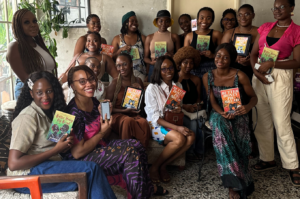
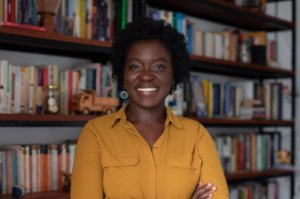
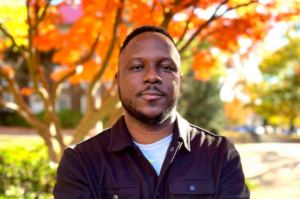

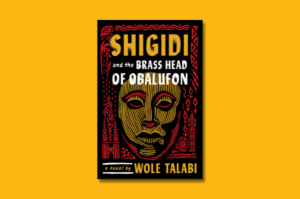
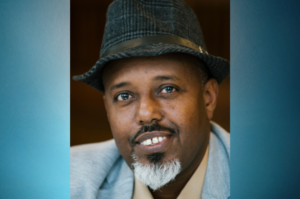

COMMENTS -
Reader Interactions